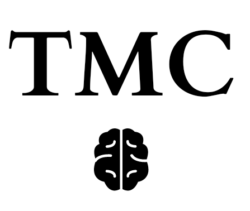Holistic approach produces valuable outcomes.
How mental health treatment could save the NHS.
The Mind and Body are inseparable. Problems in one frequently lead to issues in the other. Well-being in either helps well-being in both. Sadly, hard-pressed doctors and hospitals – perhaps also through out-dated training theories –tend to treat human ailments mechanistically – as if the body were made up of separate components like a car.
A more holistic approach is increasingly being advocated.
Evidence recently published shows that pilot schemes offering psychological assessments to patients with physical health problems cut hospital admissions by 75 percent.
NHS bosses describe the strategy as a “game changer for mental health care” and similar programmes are about to be introduced across England.
Nationwide, 3000 mental health therapists are being placed into G.P. surgeries to offer “combined mind and body care to patients.”
Making access more assessible
The NHS began testing services to integrate mental and physical treatment in 2016, as part of its Improving Access to Psychological Therapies programme. Those given a diagnosis of ailments such as diabetes, heart problems or respiratory illness are now given a “whole person” assessment that focuses on what additional mental health care the may need to manage their condition. Claire Murdoch, the national director of mental health for NHS England, said:” Effective NHS mental health care for people with long-term illness is a game-changer for our patients and good news for taxpayers. By integrating talking therapies with treatment for diabetes and heart conditions, NHS patients get care for mind and body at the same time.”
In Cambridge and Peterborough, offering mental health care to people with diabetes, cardiovascular or respiratory illnesses resulted in a three-quarters reduction in hospital admissions according to local health chiefs.
For the 500 patients in the trial, there was also a decrease of nearly two thirds in A&E attendances, and a reduction of almost three quarters in demand for G.P. appointments.
At the very simplest level, just talking to a trained therapist, with the skill and time to listen, produces positive outcomes. G.P.s can give just ten minutes per patient and, in many cases, are too willing to write (often inappropriate) prescriptions.
What that clearly means is an urgent need for more trained therapists.
The NHS plans to expand its services so that at least 1.5 million adults access care each year by 2020/21. This means that therapy services will move from seeing around 15 percent of all people with various psychological disorders (anxiety, depression etc) each year to 25 percent.
That does, of course, mean 75 percent do not get access.
Stress and mental health treatment
All this is very relevant given that this is Mental Health Awareness Week (14th – 20th May). This year the campaign is focussing on stress.
While stress isn’t a mental health problem, it often leads to depression, anxiety, self-harm and suicide. It can also lead to health problems such as immunosuppression, cardiovascular disease and joint and muscle problems.
A survey commissioned by the Mental Health Treatment Foundation has found that almost three-quarters of people have at some point felt so stressed that they felt overwhelmed or unable to cope.
Among the Foundation’s recommendations are that health and social care professionals should address the psychological and other stress factors experienced by people living with long-term physical health conditions.
Significantly, they make the key point that mental health literacy should be a core competency in teacher training. This should, they say, be combined with rolling out mental health literacy support for pupils in schools across the UK to encourage a ‘whole-school’ approach to mental health treatment and well-being.
Children’s mental health treatment is inadequate
This last point is extremely relevant given the rising tide of mental health problems among young people with the latest figures showing that mental health issues affect about 1 in 10 children (Mental Health Foundation). More worryingly, 70 percent of children and young people who experience a mental health problem have not had appropriate interventions at a sufficiently early age.
Awareness weeks, of course, are very valuable, but awareness needs to be raised all the time. Attitudes towards mental health problems are gradually changing – the stigma is beginning to disappear. But there is a lot more to be done.
Improving the nation’s mental well-being is not only vital from a health (and happiness) point of view, it also makes a huge amount of sense economically and financially.
A happy country is a rich country.
What are your thoughts about mental health treatment here in the UK?

